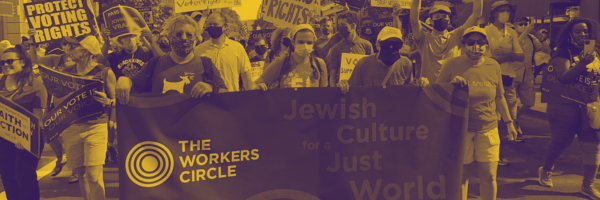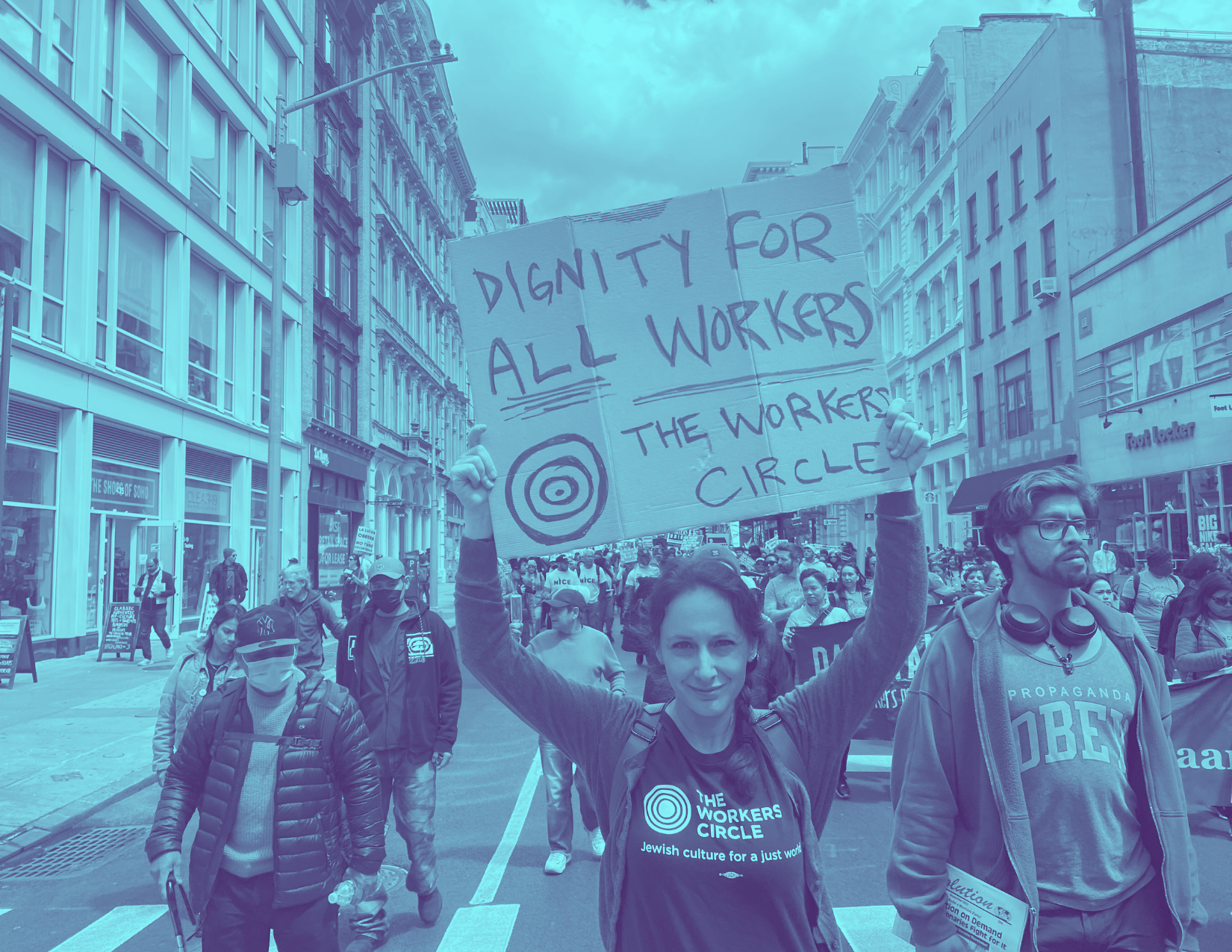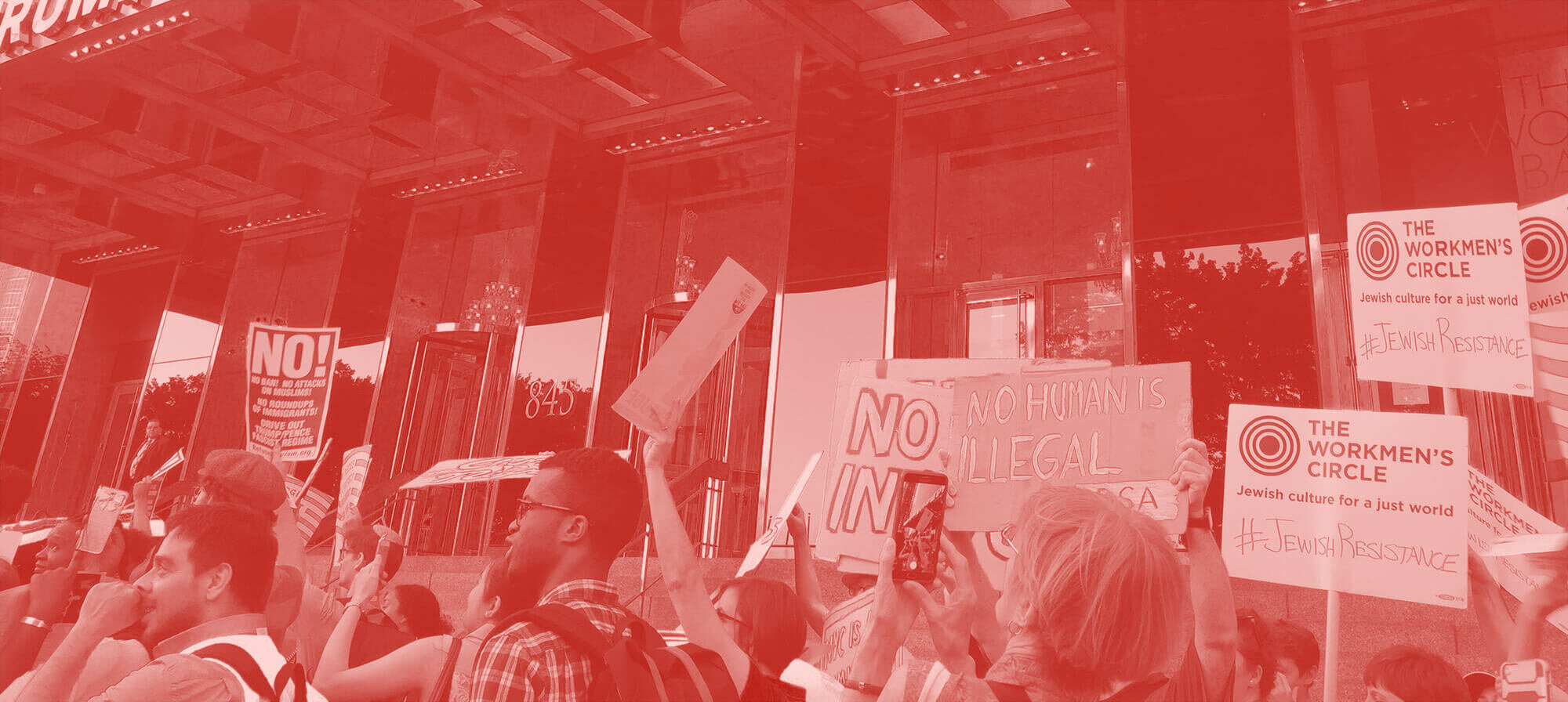Our Issues

STRENGTHENING DEMOCRACY
Voting Rights
The Issue: Our American democracy is at a tipping point. Our constitutional right to vote and our ability to conduct free and fair elections have been compromised. In 2021, following the largest voter turnout in a century and in the wake of the January 6th insurrection that employed violence to try and stop the certification of President Biden’s election, 19 states passed 34 laws that placed new barriers to voting that particularly targeted voters of color, poor voters, and student voters and opened the door for partisan officials to take over the running of elections and the tabulation of ballots. In January 2022, the Senate failed to advance the Freedom to Vote: John R. Lewis Act which would have addressed these anti-democratic attacks. Since the beginning of 2022, over 250 state laws to restrict voting and empower partisan control of elections are moving through state legislatures. At stake is our very democracy.
This anti-democratic turn began to accelerate a decade ago with the 5-4 Supreme Court decision in Shelby County v. Holder (2013) that eliminated a key protection in the landmark 1965 Voting Rights Act, which required states with long histories of suppression to have any changes to voting rights law pre-approved by the federal government. When this preventative mechanism was ended, states began to impose many new restrictions on voting, including onerous photo ID rules, voter list purges, polling site closures, and more. These barriers disproportionately impacted voters of color — the very citizens the Voting Rights Act was designed to protect. When millions of citizens in the United States face obstacles and barriers to casting their votes, the underpinning of our democracy is threatened.
Starting in 2020, the Workers Circle committed to campaigns that help equip voters of color in heavily suppressed communities with the tools they required to cast their votes. We made thousands of calls to voters in the South and in Georgia in advance of the 2020 Senate runoff. Today, ensuring voters of color have the information they need to have the best chance of having their votes counted is a critical front in the fight against voter suppression. While we work for a federal solution, we cannot leave voters stranded. We are proud to work with the Center for Common Ground to phonebank weekly and empower voters to navigate this shamefully treacherous terrain to cast their votes and have them counted.
We are working in partnership with the Leadership Conference for Civil and Human Rights and the Declaration for American Democracy, a coalition of more than 250 organizations, to chart a path forward for federal voting rights legislation given the Senate’s shameful decision to sideline the Freedom to Vote: John R. Lewis Act and, instead, protect the filibuster and state voter suppression laws rather than every American’s right to vote and the left our election process itself vulnerable. Background on that comprehensive bill is below and demonstrates the kinds of reforms we must insist Congress enact. The history of how this bill came to be and the obstacles it faced demonstrates why Workers Circle has advocated for an end to the filibuster since 1957.
In January 2022, Congress combined the Freedom to Vote Act and the John Lewis Voting Rights Advancement Act into one bill called Freedom to Vote: John R. Lewis Act.
The John Lewis Voting Rights Advancement Act, H.R. 4, was introduced to restore the protections stripped away by the U.S. Supreme Court in its 2013 Shelby County v. Holder decision. H.R. 4 was passed by the House in August 2021 and was introduced in the Senate in September 2021. Historically, the Voting Rights Act has had strong bi-partisan support having been reauthorized and expanded by Congress in 1970, 1975, 1982, 1992, and 2006.
The Freedom to Vote Act (S. 2747), was introduced on September 14, 2021 by Senator Amy Klobuchar, is a successor bill to the For the People Act (H.R.1/S.1), a sweeping package of democratic reforms to make voting simpler, safer, and fairer, get big money out of politics, and hold public officials accountable.
On March 4, 2021, the House passed H.R. 1, but Republicans filibustered the For the People Act in the Senate in June. Meanwhile 19 states passed 34 laws designed to make voting harder overall but especially for voters of color. From limiting drop boxes, to prohibiting the distribution of food and water to voters waiting hours in line, to expanding voter purges, accelerated partisan gerrymandering and even authorizing the take-over of boards of elections and the discarding of provisional ballots.
Because our democracy can’t wait, and all legislation must garner 3/5th (or 60 votes) from the Senate to defeat any filibuster attempt, and because of the real possibility that these new state laws allowing takeovers of the board of election could lead to the overturning of election results a small group of senators developed a revised bill, the Freedom to Vote Act. This strong bill would have set national standards that will stop voter suppression in its tracks, end partisan racial gerrymandering, protect voters and election officials from intimidation, protect and expand vote by mail, establish early voting, end mass challenges and purges of voter rolls, and prohibit Jim Crow era witness requirements on mail in ballots. Recognizing that moving polling places and poor notification are tried and true ways to disenfranchise voters, the FTVA would have required ballots to be counted in the county in which they are cast even if they are cast at the wrong district. Importantly, it would have restored voting rights to previously incarcerated people.
Historically, the courts have played an important role in voting rights protections. Following the Shelby ruling in 2013 which eliminated pre-clearance, article two of the Voting Rights Act, which covers suits filed after discrimination has already occurred, became the only mechanism to try and remedy racial discrimination. In 2016, a group of Arizona voters and the Democratic party filed suit to challenge two Arizona policies as discriminatory. Earlier that year, the Arizona legislature limited who could provide ballot-collection assistance to mail voters. Arizona also had a policy of entirely rejecting ballots cast in the wrong precinct — including votes for president or statewide office. Both policies limited access for voters of color. The suit aimed to ensure all eligible Arizona voters have an equal opportunity to participate in our democracy and affirmed that racial discrimination has no place in our elections. The case, Brnovich v. DNC, was argued before the Supreme Court of the United States on March 2, 2021.
The Workers Circle signed onto an amicus brief prepared by the Leadership Conference on Civil and Human Rights in support of the challenge. Read the full brief here. In a 6 to 3 ruling the Court upheld these discriminatory Arizona laws. The Workers Circle CEO Ann Toback declared this decision to be an affront to both democracy and equality. The Freedom to Vote Act took account of this regressive court decision and would require votes to be counted in the county in which they are cast.
Why we must end the filibuster: President Obama called the filibuster “a Jim Crow relic” during his eulogy for the late Congressman and civil rights champion John Lewis. The filibuster was not part of our nation’s founding documents. In fact, it was innovated in 1841 by John C. Calhoun the white South Carolina senator who notoriously defended slavery as “a positive good”—after a clean-up of the senate rule book inadvertently eliminated the mechanism to end debate and move to an actual vote. It has been used to delay and block civil rights, indeed the longest record for a speech goes to South Carolina's J. Strom Thurmond who filibustered for 24 hours and 18 minutes against the Civil Rights Act of 1957. In recent years the filibuster has become a procedural tool that allows the minority to stop legislation in its tracks and become a tool of obstruction that has ground the Senate to a halt on so many issues. Learn more about the filibuster and why it needs to go.
Take Action:
Stop voter suppression by becoming an Election Protection volunteer. You can sign up here.
Our democracy needs you, not only vote but to serve. Register to be a Poll Worker.
Join Workers Circle weekly phonebanks with the Center for Common Ground that equip voters of color in historically vote suppressed states with the information they need to navigate registering and casting their ballot in light of new state voter suppression laws. [Phone banks will resume in mid-March.]
Learn more:
Watch Live from the Frontlines: Protecting our Democracy; A Conversation with Journalist Ari Berman, February 23, 2022
Video: Live from the Frontlines of the Fight for Voting Rights: A Conversation with Journalist Ari Berman, July 2021
Video: From Bloody Sunday to Today, the Fight for the Right to Vote, March 2021
“No, This Election Did Not Go “Smoothly,” an assessment of the November 2020 Election by Sherrilyn Ifill, President and Director-Counsel of the NAACP Legal Defense and Educational Fund, Inc. (LDF) in Slate.com, November 9, 2020.
Eric H. Holder, attorney general of the United States from 2009-2015, marked John Lewis’s passing with an opinion piece in the Washington Post, July 20, 2020: “John Lewis fought for Voting Rights. If You’re Against that, You’re Against Him: No Other Tribute is Worthy of His Life and Work”
“What does the new census data mean for voting rights?” Democracy Docket, 08/11/21

The Issue: The Coronavirus pandemic has taken a devastating toll on lives and livelihoods, highlighting pre-existing and persistent economic and racial inequality. Relief legislation, eviction moratoriums, and supplemental unemployment insurance have provided some relief for eligible workers and their families, but these are set to expire in the weeks and months to come. Even the new child tax credit which has the potential to lift five million children out of poverty is temporary. Workers Circle pushed hard for immigrant workers to be included in these relief benefits but Congress rejected that appeal. Legislation and policies are needed to address economic inequality, its disproportionate impact on people of color due to structural racism, and to ensure workers’ rights for everyone residing in the US.
Since its founding in 1900, The Workers Circle has supported the right of workers to unionize in order to collectively bargain for better wages, working conditions, and benefits. Today we support the PRO (Protecting the Right to Organize) Act. In addition, we support the Coalition of Immokalee Workers Fair Food Program and the Wendy’s Boycott to expand that successful human rights program for farmworkers. We salso upport the Fight for 15 and the Raise the Wage Act to raise the federal minimum wage for all workers.
Read Ann Toback’s May Day 2021 statement here.
Summary: After Congress excluded immigrant workers, even those serving in essential frontline jobs, from pandemic relief. Immigrant workers and their allies, including Workers Circle, stepped up their efforts on the state level. After hard-fought campaigns several states approved a fund for excluded workers, including New York and New Jersey. Workers Circle continues to work with immigrant rights groups on the NYS fund’s implementation and rules. More needs to be done to help excluded workers and their families. Read Workers Circle statement on New York fund for excluded workers passage.
The House included a provision to raise the federal minimum wage in the economic stimulus bill passed in March 2021, but it failed in the Senate. Efforts to include it in the COVID relief bill, considered under the budget reconciliation process which precludes the filibuster, were thwarted when the Senate parliamentarian ruled that it did not meet the criteria for inclusion in a reconciliation bill. Some cities and states have raised their minimum wage but too many workers, disproportionately women of color, are still earning the current $7.25 per hour rate or $2.13 for tipped workers. In April, President Biden signed an Executive Order raising the minimum to $10.95 for workers doing work on or in connection with federal contracts. Now it’s up to us to get the Senate to pass the Raise the Wage Act.
Over the years, workers’ right to form a union and negotiate for fair wages, working conditions and benefits have come under attack by corporations and been weakened by state laws and conservative judicial decisions. Stagnant wages, health and safety violations, and loss of benefits have harmed working families. The PRO (Protecting the Right to Organize) Act would strengthen federal laws that protect workers’ right to form a union. In March 2021, the bill passed the House with bipartisan support. Although a hearing was held in the Senate in July 2021, the PRO Act faces an uphill climb. Three Democratic senators, Sens Mark Kelley (D-AZ) and Kyrsten Sinema (D-AZ) and Mark Warner (D-VA) have refused to co-sponsor the bill, discouraging Majority Leader Chuck Schumer (D-NY) from moving the bill forward for a vote.
In the last generation, production of goods and food has increasingly been impacted by the power of corporate supply chains. Workers laboring at the bottom of these supply chains often face sweatshop conditions, sexual violence, wage theft, and, in extreme cases, conditions of modern slavery. But at the end of the day, these corporations must respond to the demands of their consumers. The Workers Circle is a partner with the Coalition of Immokalee Workers in ending and preventing these egregious conditions for tens of thousands of US farmworkers in 8 states through the Fair Food Program. We’re working in partnership with farmworkers to bring Wendy’s into the Program to expand these rights to thousands more. We also participate in the #PayYourWorkers online campaign which joins union and consumer power to demand global fashion brands respect the labor rights of the 35 million garment workers in their supply chain.
Take Action:
Learn more:
Economic Policy Institute: Raising the minimum wage to $15 an hour by 2025 would lift the pay of 32 million workers
Human Rights Watch: Why the US PRO Act matters for the right to unionize
Coalition of Immokalee Workers Fair Food Program and Wendy’s Boycott
What we won: NYS Fund for Excluded Workers

IMMIGRANT RIGHTS
The Issue: Immigrants have actively contributed to our society and economy since our nation’s founding. The Workers Circle, an organization founded by Eastern European Jewish immigrants in 1900, has long supported policies and laws to welcome refugees and immigrants and ensure that they have rights and protections. We have also spoken out on behalf of undocumented immigrants, an integral part of our communities, calling for a path to citizenship and economic relief during the pandemic.
Summary: Today, hundreds of thousands of immigrants in the United States have been laboring on the frontlines of the pandemic as essential workers, risking their own health, and that of their loved ones, to ensure our country’s produce is picked, meat is processed, stores are sanitized, and health care is delivered. Yet they have been excluded from most federal relief, leaving states to consider or act to create a fund for excluded workers as New York state has done, a move actively supported by Workers Circle.
In addition, a broad expansion by the Trump Administration of who is considered a “public charge” and thus either barred from entry visas or an upgrade in immigration status left many immigrants fearful of accessing government assistance for food, healthcare, and low-income housing at great harm to their families. President Biden has made it clear that he wants to reverse the Trump public charge. The Biden Administration has withdrawn from legal challenges that Trump initiated against court decisions that overturned or suspended implementation of the public charge rule. As a result, the expanded Trump rule is no longer in effect. The Workers Circle applauds the Biden actions and, further, believes that US immigration law should be stripped of any public charge language.
President Biden has also announced a sweeping immigration reform bill, the US Citizenship Act, providing a path to citizenship for many undocumented individuals in the US. Separately, bills to enshrine the DACA (Deferred Action for Childhood Arrivals) program including a path to citizenship and to give farmworkers a path to citizenship have already passed the House. Workers Circle supports the path to citizenship and is working to ensure that immigrants have access to health care programs while they are awaiting citizenship.
The HEAL for Immigrant Families Act, supported by Workers Circle and hundreds of other groups, has been reintroduced to ensure that immigrants and their families have access to affordable health care through the Affordable Care Act marketplace, the Children’s Health Insurance Program (CHIP), and Medicaid.
Under the previous administration, the number of refugees admitted to the United States fell precipitously, with a cap of 15,000 instituted by President Trump. President Biden, after first announcing that he was retaining the lower cap, heeded pressure from faith grounds, leaders, and organizations including Workers Circle and set the cap for fiscal year 2021 at 62,500.
Take Action:
Learn More:
Learn more about the Fund for Excluded Workers in New York State
Read this one-page Brief on the US Citizenship Act
Ending the Racist Wealth Test: Eliminate the Public Charge Provision
Op-Ed by Ann Toback in Albany Times Union: New York must protect immigrants at courthouses
Op-Ed by Ann Toback in Jewish Week: The ‘Public Charge’ Rule Puts Immigrants in the Crosshairs
New York Times Letter to the Editor by Ann Toback: Another Setback for Immigrants
Press Release: The Workers Circle Responds to End of Trump-Era Public Charge Rule
Press Release: The Workers Circle Celebrates US Supreme Court DACA Decision




